Sharing God’s House in an Ever-Changing Community
At a crossroads in Minneapolis, Minnesota, three congregations share space each Sunday at 5139 Brooklyn Boulevard. The Laotian Covenant Church, Nuestra Esperanza Covenant Church, and Brookdale Covenant Church all gather in the building, each ministering to the diverse population of Brooklyn Center, one of the more ethnically and economically diverse inner-ring suburbs of the Minneapolis-St. Paul metro area. “We are serving our neighborhood. We are doing it in separate language groups, knowing that people of those language groups are very well-represented in the immediate community,” said Renee Franzen, senior pastor of Brookdale Covenant.
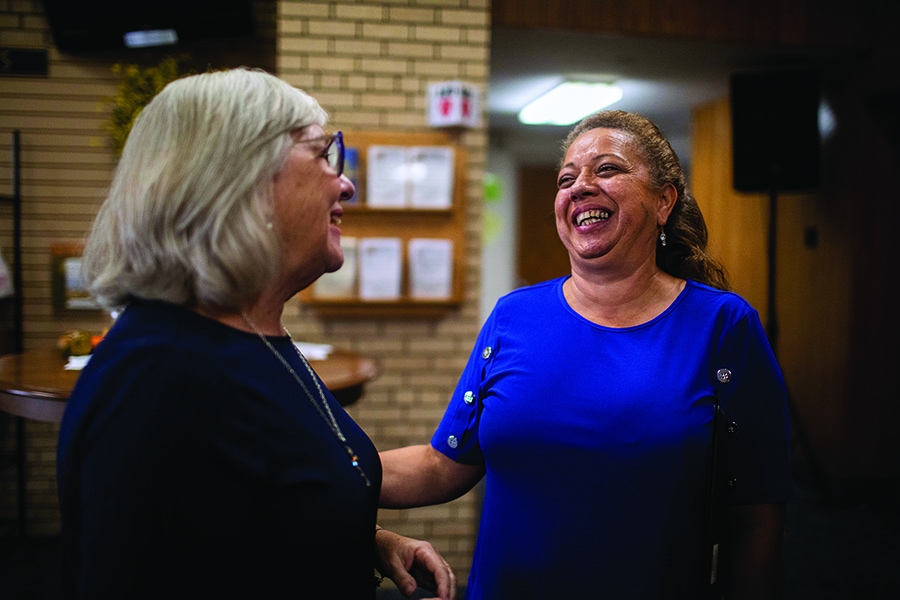 Originally founded 125 years ago as Camden Covenant Church, Brookdale Covenant began as a group of approximately 20 Swedish immigrants who met in a private home. The congregation eventually moved to Brooklyn Center in 1956.
Originally founded 125 years ago as Camden Covenant Church, Brookdale Covenant began as a group of approximately 20 Swedish immigrants who met in a private home. The congregation eventually moved to Brooklyn Center in 1956.
Reverend Soudinh Penkay and his Laotian congregation began meeting in the building at 5139 in 1997, and the Laotian Covenant Church was formally welcomed into the Covenant in 2004.
Nuestra Esperanza is a Covenant church plant led by Hector and Betty Reyes. Eager to serve the multiethnic population of Brooklyn Center, Nuestra Esperanza started meeting at 5139 in February of 2020, just prior to the initial outbreak of Covid-19 in the United States. They had been looking to join the Assemblies of God, but then they found the Covenant and met with Northwest Conference leaders. “We are grateful to God and the Covenant. It was like being orphaned and finally finding your home and family—you forget you were ever alone,” says Hector Reyes.
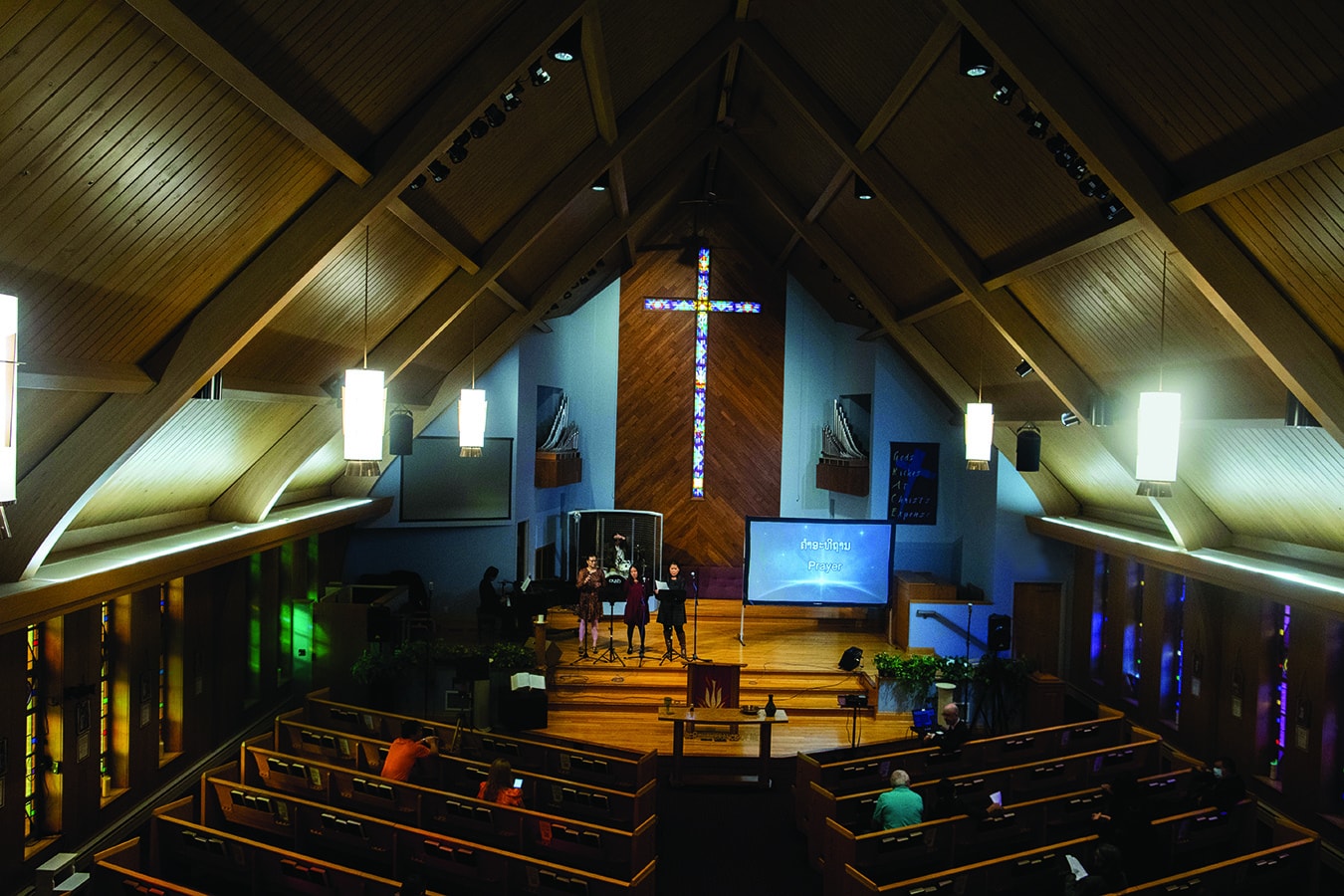 Sharing space is the most obvious way the three congregations interact, especially in this season of Covid. “For the most part we see each other in passing and we stay in communication with each other,” said Roger Mach, a member of the Laotian Covenant Church.
Sharing space is the most obvious way the three congregations interact, especially in this season of Covid. “For the most part we see each other in passing and we stay in communication with each other,” said Roger Mach, a member of the Laotian Covenant Church.
Mach serves as the financial secretary and the liaison for the LCC, and he also assists with media and preaches on occasion. Led by Pastor Viengkou Thao, the LCC gathers at 2:00 pm on Sunday afternoons to set up for their worship service at 3:00 pm. When Thao preaches, the sermon is translated from Lao to English. And when Mach preaches, it is translated from English to Lao. Mach commented, “Each week as we set up and tear down the equipment, and we kind of grumble about, ‘Gee, if we had our own church,’ but there’s a lot of responsibility with having your own property. We’re really pleased to be at Brookdale. It’s a great facility and a great leadership and congregation, so we’re really grateful for where we are.”
Reyes adds, “Planting a church with this type of assistance is a great opportunity for those of us who want to pastor and lead congregations. It allows us to begin pastoring right away without the stress of having to purchase or rent our own building, or having to find a space to worship. The real benefit is the camaraderie. We were surprised by the heart and love of the host church, its directors and leaders, as well as the entire congregation.”
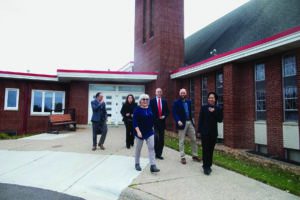 During the ever-changing landscape of the pandemic, Brookdale Covenant took the lead on establishing Covid protocols for the building, following state and federal guidelines. At one point, none of the three congregations was meeting in person, and collaboration was crucial in acquiring and installing the technology to make live-streaming and online worship possible for all three groups.
During the ever-changing landscape of the pandemic, Brookdale Covenant took the lead on establishing Covid protocols for the building, following state and federal guidelines. At one point, none of the three congregations was meeting in person, and collaboration was crucial in acquiring and installing the technology to make live-streaming and online worship possible for all three groups.
One bright spot in the midst of Covid was a joint Pentecost service on May 23, 2021. All three congregations gathered outside that day, along with North City Church, a church plant who needed a place to meet when the school where they met was temporarily closed to outside groups. They became the fourth church meeting at 5139. Four congregations worshiping in four languages—an appropriate incarnation of Pentecost. They worshiped in English, Spanish, Lao, and Thai, which some members of the Laotian church speak.
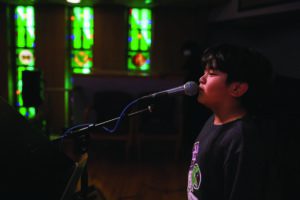 Reyes says: “Pudimos cantar juntos pero en nuestros propios idiomas: una alabanza en inglés, una en español, con la inclusión de la iglesia de Laos también. En cierto sentido, todos hablamos el mismo idioma: el de adorar al Señor”. (“We were able to sing together but in our own languages—we sang praises in English and praises in Spanish, with the inclusion of the Laotian church as well. “In a sense, we actually all spoke the same language—that of worshiping the Lord.”)
Reyes says: “Pudimos cantar juntos pero en nuestros propios idiomas: una alabanza en inglés, una en español, con la inclusión de la iglesia de Laos también. En cierto sentido, todos hablamos el mismo idioma: el de adorar al Señor”. (“We were able to sing together but in our own languages—we sang praises in English and praises in Spanish, with the inclusion of the Laotian church as well. “In a sense, we actually all spoke the same language—that of worshiping the Lord.”)
“I think the service was strategically chosen by the Holy Spirit, to tell you the truth,” explains Franzen. “When you get four different entities and ask when a joint service is going to work, and it fell on Pentecost? We were all delighted because it made sense! It was an expression of what we really long to be. We can be different entities because to some extent you need to be, given language differences, but we can also be together. We can do both of those things.”
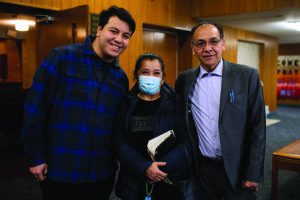 Doing both things—embracing differences and maintaining unity—is possible when there is a common understanding that one congregation does not need to be all things to all people. Shared space has led to shared resources and skills. The diversity present in partnerships creates opportunity for bigger, more beautiful ministry.
Doing both things—embracing differences and maintaining unity—is possible when there is a common understanding that one congregation does not need to be all things to all people. Shared space has led to shared resources and skills. The diversity present in partnerships creates opportunity for bigger, more beautiful ministry.
“How I envision it is there is this entity called 5139—that’s our building, it’s our street address,” Franzen said. “We have occupied this corner—a major intersection of Highway 100 and Brooklyn Boulevard—since 1956. But this is God’s building, and this is God’s work, and however God is leading the 5139 enterprise to move into the community, as much as possible, we want to say yes to that. And that is going to be a transitional, language-rich experience because that’s what the immediate neighborhood is.”
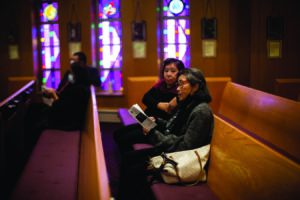 Saying yes to God’s leading is not a challenge-free endeavor, of course. Language differences consistently call for patience with a slower pace of communication and persistence when inevitable setbacks and misunderstandings occur. “Recognizing that 5139 is God’s resource to be used for God’s purposes means the vision for the building and its use must transcend the us/them mindset that can easily arise when two or more groups find themselves in close quarters,” said Franzen.
Saying yes to God’s leading is not a challenge-free endeavor, of course. Language differences consistently call for patience with a slower pace of communication and persistence when inevitable setbacks and misunderstandings occur. “Recognizing that 5139 is God’s resource to be used for God’s purposes means the vision for the building and its use must transcend the us/them mindset that can easily arise when two or more groups find themselves in close quarters,” said Franzen.
Turning the space over between services presents its own challenges. Each church has a particular way they set up their equipment, instruments, and audiovisual needs for services. Reyes explains, “Time constraints make it necessary for us to set up and tear down fairly quickly. But it turns out to be a truly good experience because we get to interact with the Laotian worship team and with Brookdale during setup and tear down.”
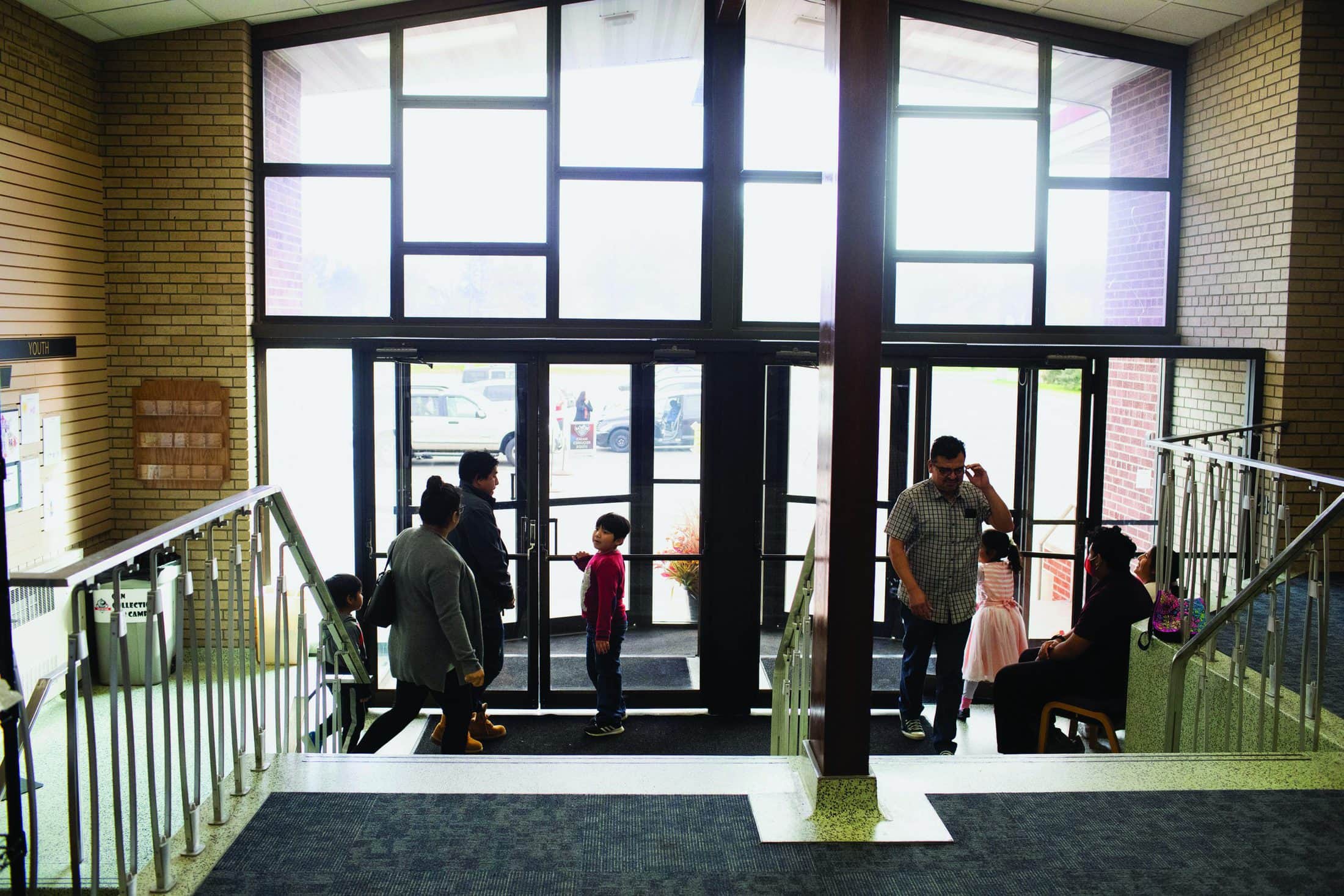 Flexibility has become fundamental in the uncertainty of the pandemic. “That’s what we’re really understanding: how fluid the body of Christ needs to be,” Franzen said. “Not tribal, not patting ourselves on the back, just really fluid. Where is the Spirit moving, and how do we not miss it?”
Flexibility has become fundamental in the uncertainty of the pandemic. “That’s what we’re really understanding: how fluid the body of Christ needs to be,” Franzen said. “Not tribal, not patting ourselves on the back, just really fluid. Where is the Spirit moving, and how do we not miss it?”
Staying present in the present while “saying yes sooner than we say no” is how Franzen encourages herself and others to stay open to and united in the Holy Spirit. “I don’t want to paint this picture that we’ve figured it out. But I do want to paint the picture that God seems to be having a lot of fun with us and is opening doors and new ways of thinking about what it means to be a church.”
Franzen continues, “Being a church—being the Church—means sharing spaces—our buildings, our communities, our lives. Even when we do so imperfectly, it is still perfectly worth doing. We don’t have a formula that we can give to anybody else. We don’t know quite where this is going, and we’re not doing it perfectly, but we have the sense that God is doing something in the stumbling, and it’s important to say yes to that.”














